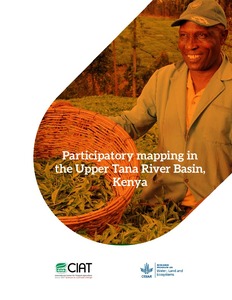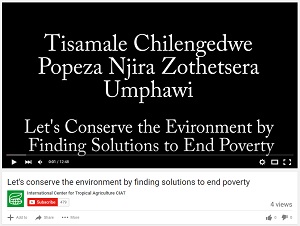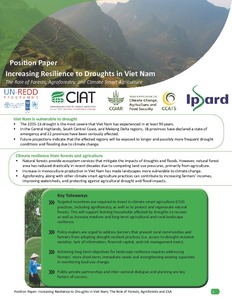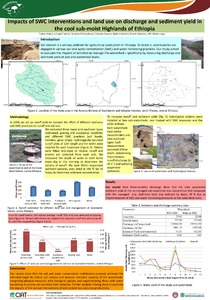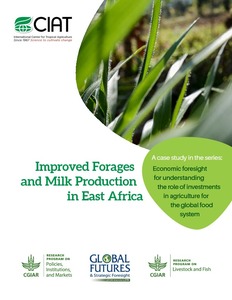Mission
To reduce hunger and poverty, and improve human nutrition in the tropics through research aimed at increasing the eco-efficiency of agriculture.
People
CIAT’s staff includes about 200 scientists. Supported by a wide array of donors, the Center collaborates with hundreds of partners to conduct high-quality research and translate the results into development impact. A Board of Trustees provides oversight of CIAT’s research and financial management.
Values
- Shared organizational ethic
- We respect each other, our partners, and the people who benefit from our work. We act with honesty, integrity, transparency, and environmental responsibility in all of our joint endeavors.
- Learning through partnerships
- We work efficiently and pragmatically together and with partners. Considering our diversity to be a key asset, we adapt readily to change and strive to improve our performance through continuous learning.
- Innovation for impact
- We develop innovative solutions to important challenges in tropical agriculture, resulting in major benefits for the people who support, participate in, and profit from our work.
Members:
Resources
Displaying 166 - 170 of 958Participatory mapping in the Upper Tana River Basin, Kenya
Let's conserve the environment by finding solutions to end poverty
This participatory video was filmed, produced, and directed by a group of 12 farmers and community members from the villages of Mpulula, Malaswa, Kapalula, and Gwauya, Malawi. With this video they want to communicate the message that “we can conserve the environment by finding solutions to end poverty.” The film features farmers describing the value of trees, vetiver grass strips, collective action and the importance of alternative livelihoods to the destructive practice of charcoal making. In English and Chichewa.
Increasing resilience to droughts in Viet Nam: The role of forests, agroforestry, and climate smart agriculture
Impacts of SWC interventions and land use on discharge and sediment yield in the cool sub-moist Highlands of Ethiopia
Improved forages and milk production in East Africa. A case study in the series: Economic foresight for understanding the role of investments in agriculture for the global food system
Production of livestock and dairy products in Sub-Saharan Africa has not kept pace with growing demand. The potential exists to close this gap in a climate-friendly way through the introduction of improved forage varieties of the Brachiaria genus. We assess the potential economic impact of the development and release of such varieties in six East African countries using an economic surplus model. Results are presented across a range of potential scenarios involving different adoption rates and percentage increases in productivity.


